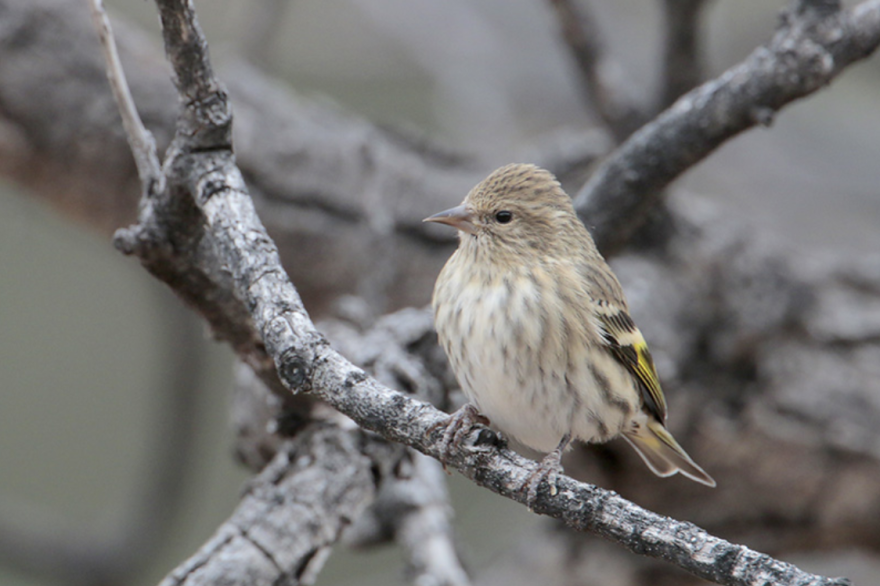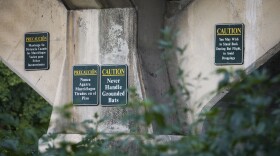There's been an uptick of people across Texas finding dead songbirds in their yards, according to officials from the Texas Parks and Wildlife Department.
Cliff Shackelford, the state ornithologist with TPWD, said Pine Siskins — a type of finch with yellow and brown coloring — have been hit the hardest.
“Pine Siskins overall have been experiencing pretty severe declines,” he said. “We definitely don’t want more deaths to happen.”
In other parts of the country, similar reports have been linked to a disease caused by salmonella bacteria. But Shackleford said the cause in Texas hasn't yet been determined, as preliminary tests have come back inconclusive.
"We can’t identify what killed a bird just by looking at it," he said.
Though the exact cause is unknown, Shackelford said it's believed a disease is spreading through bird feeders and birdbaths.
"At this point, it really doesn’t matter what’s killing them because we’re not going to do anything about salmonella any differently than aflatoxin or trichomoniasis," he said. "The key is we have to shut down the feeding. If we’re creating these super spreader sites, it’s up to us as humans to eliminate that when there’s a problem."
When birds stop at feeders and birdbaths they leave behind saliva and fecal droppings, which can infect other birds.
When one sick bird stops to feed or drink, it can shed its illness on the feeder, and layter infect other birds, said Anna Vallery, a conservation specialist with Houston Audubon.
Vallery said she's never gotten so many inquiries about sick and dying birds before, and based on the descriptions she's received and seen, she thinks it's likely salmonella.
"They are all displaying these classic symptoms of this salmonellosis — looking lethargic, being puffed up, having kind of crusty eyes, things like that," she said.
Vallery said if people find sick or dead birds in their backyards they should remove any bird feeders and water features for a few weeks and clean them using a 10% bleach solution.
She added that people can hang them back up — but that feeders and birdbaths should then be cleaned daily.
"That is a lot to ask of someone, so the easier mode of action is to take down the feeders, disinfect them and then leave them down for a couple of weeks until the sick birds have kind of moved out of the area," Vallery said.
People can also report diseased feeder birds via TPWD's iNaturalist portal, which helps officials track trends.
Pine Siskins are usually found farther north in the boreal forests of Canada.
But this year hundreds of them flew further south in search of food.
The birds are expected to migrate north for spring soon, which should help control the disease outbreak.
"The number of Pine Siskins in the Houston area, across Texas, is really unprecedented," Vallery said.







